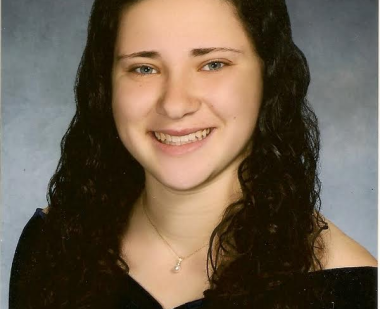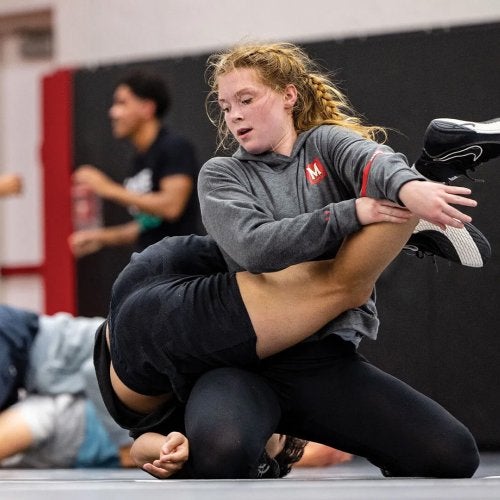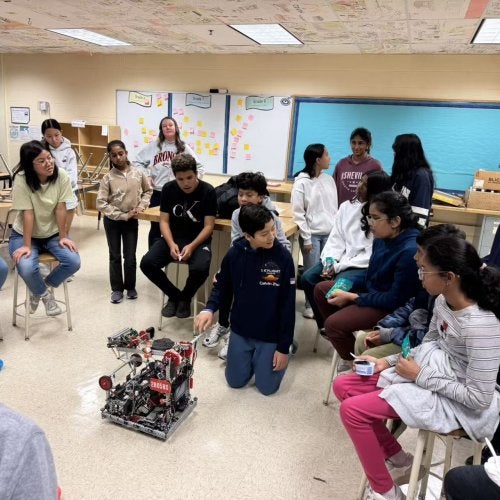
Sara Tatum is a junior in the College of Education and is majoring in math and secondary education. She is part of the Terrapin Teachers Program, which provides students the chance to earn a bachelor’s degree in a math or science field along with eligibility for a teaching certification. Terrapin Teachers is a joint program run by the College of Education and the College of Computer, Mathematical, and Natural Sciences. She is also a Noyce Scholar, a program aimed at getting math and science majors into middle and high school classrooms. She works with the University of Maryland’s Center for Early Childhood Education and Intervention, where she is working with students in Baltimore City Public Schools to determine how much benefit they receive from pre-K programs—information which could have an impact on future program funding.
[This interview has been edited and condensed.]
Why did you decide to pursue your undergraduate degree at the University of Maryland?
I was very interested in the Terrapin Teachers Program, specifically because of its goal to get students teaching in classrooms in their very first semester, as it is my belief that one of the best ways to learn how to teach is to actually teach.
Why do you want to become a teacher?
I’ve wanted to be a teacher since I was 6 years old. At that time, I didn’t know why I wanted to be a teacher, but now I know that I want to better the lives of others. I had the benefit of getting a very good education; however, not everyone has that opportunity, and I know how much teachers can influence a student’s drive to learn. So many students are terrified of math, and I think that it’s important that students can see how much math can benefit them in their future careers.
What person or experience has had the greatest impact on your studies at Maryland so far?
So far, the Noyce Scholars Program has had the largest impact on my time at UMD. Through the program, I was able to work as a math tutor at Northwestern High School my freshman and sophomore year. I also participated in a summer internship with Montgomery County Public Schools, working with the central office’s math curriculum development team. The experiences I had through my internships helped me become a better teacher than my courses alone could have prepared me to be. I was able to see aspects of teaching not usually available to me. I had the chance to help rewrite Montgomery County’s Algebra II curriculum to align with the Common Core Standards, developing worksheets, tests, and other resources for teachers to use. I also got to observe more classrooms than I normally would in my program.
What is the biggest issue or challenge in your field, as you see it?
A lot of students have a fear of mathematics. This fear starts at a young age and is frequently reinforced by parents, friends, and also popular media. As a high school teacher, it’s hard to reverse these feelings and to keep students on track with the math that they should be learning. Math is a subject that really builds on itself from year to year and topic to topic, so if a student is unsure about a certain aspect of math, it is likely to affect the student in all avenues of their math learning and can discourage them. In these situations, it’s important to offer students scaffolds that will let them continue their math learning without getting stuck on a topic from three years ago that caused them mathematical discomfort.
Any other related experience that played a role in your academic and/or career path?
I’ve been seeking out ways to help teach students for my entire academic career. In high school, I volunteered as a teacher’s assistant at a summer school for special needs students who needed additional reinforcement to help them understand what they had learned in the previous year. I also sought out opportunities to tutor my fellow classmates and had a lot of great teachers who helped convince me that teaching was a worthwhile profession in which I could help others.
What do you hope to do after graduation?
I hope to attend graduate school, and then I want to teach in an underprivileged school where the students really need someone to take the time to walk them through the process of learning math. I think that in schools like this, I would be able to make the most difference. My desire to teach in an underprivileged school also aligns with the goals of the Noyce Scholars Program, which aims to put math and science teachers into underprivileged schools where they can make a huge impact on the students.


